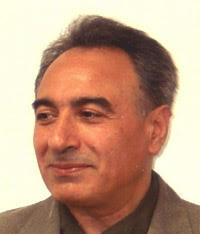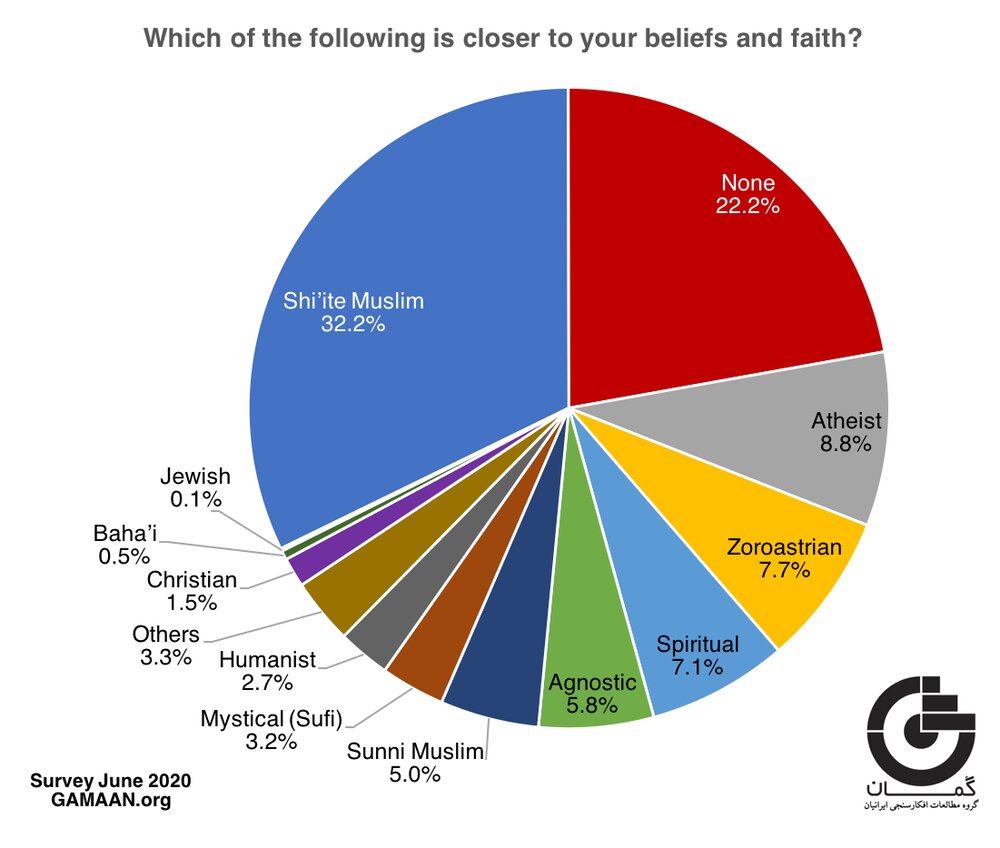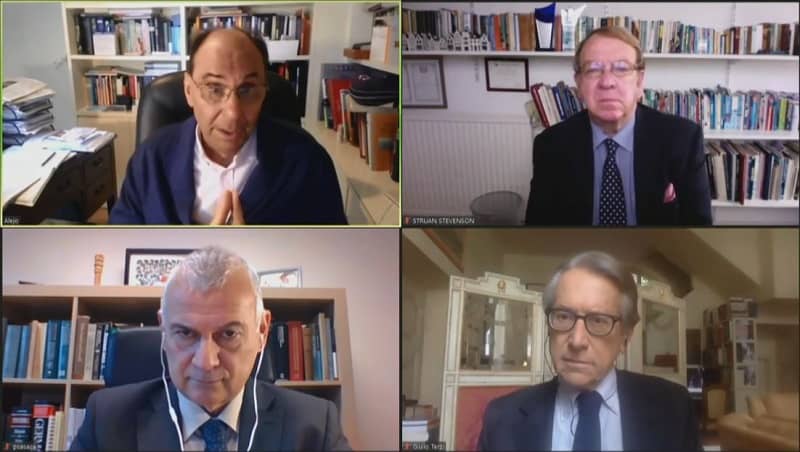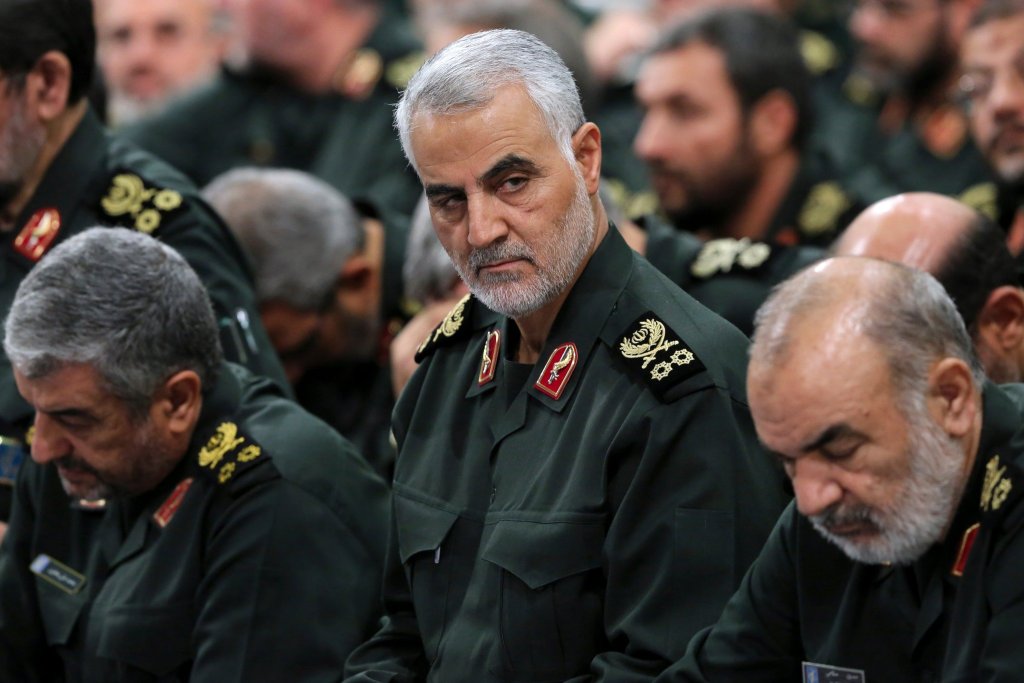محمد ارسی
مقدمه:
آمدن عمران خان نخستوزیر پاکستان به ایران و قول و قرارهای گوناگونی که بین دو کشور گذاشته شد، انگیزهای گردید تا نویسنده این سطور، ضمن اشاره به تاریخ عمومی و وضع فعلی پاکستان، این پرسش اساسی را مطرح کند که با توجه به شباهتهای روشنی که میان سپاه پاسداران انقلاب اسلامی ایران و ارتش پاکستان دیده میشود، یعنی سلطهی پنهان و آشکاری که سپاه پاسداران نیز نظیر ارتش پاکستان در تمام امور داخلی و خارجی کشور خود اعمال میکند، آیا ایران نیز به پاکستان دیگری مبدّل نخواهد شد؟
نظری به اوضاع عمومی پاکستان
پاکستان نمونهی روشن یک کشور درمانده ست، درمانده در حدی که از حلّ هر مسئلهی مهم مملکتی اعم از داخلی و خارجی يا ملّی و بینالمللی، عاجز و ناتوان است؛ پاکستان با ۱۶۰ میلیون جمعيت با هفتمین ارتش توانمند جهان که به جنگ افزار اتمی نیز مجهز است، در میان دُول درمانده عالم که در انگلیسی Failed States میگویند در بدترین وضعیت ممکن قرار دارد، وضعيت بدی که مطلعین «منطقه» حتی خود محققین و دستاندرکاران آن کشور، مثل احمد رشید… موقعیت پاکستان را قرارگرفتن در لبهٔ پرتگاه پاشیدگی تلقی میکنند، و در افق دور، در دراز مدت هم موقعيت رهايی و راه نجاتی برای مردم مظلوم آن مشاهده نمیکنند.
پاکستان نقطهی تلاقی مجموعهی مشکلات و مسائلی ست که هر یک از آنها میتواند برای نابودی و پاشاندن هر کشور و مملکتی در در دنیا کافی باشد: تروریزم مذهبی، جنگ فرقهای، اختلافات قومی و ملی، جنگ قدرت در میان احزاب و شخصيتهای سياسی، فساد مالی و اجتماعی، ناامنی جمعی، فقر عمومی، ضعف شدید آموزشی و بهداشتی، بیهمسایگی و انزوای سیاسی، جنگ طولانی خارجی و کودتاهای پی در پی نظامی که به همه کاره شدن نظامیان، معطل ماندن قانوندانان، و بیمعنی شدن قانون اساسی در پاکستان منجر گشته، مجموعهٔ علل و عواملی هستند که از پاکستان کشوری درمانده ساختهاند؛ و چون آلوده به تعلیمات افراطی تروریستی-مذهبی، و از طرفی مجهّز به اسلحهی اتمی است، به مملکتی خطرآفرین و بحرانساز برای منطقه و آیندهی کرهی خاکی ما تبدیل گشته ست!
در ارتباط با تروریزم ایدئولوژيکی- مذهبی، پاکستان را میشود کانون اصلی تولید اسلامیست-جهادیستهای منطقه نامید؛ زیرا نطفهٔ طالبان را با یاری دستگاه اطلاعاتی ارتش پاکستان بستند، بن لادن و القاعده در آنجا جان گرفتند و ریشه کردند، گروههای تروریستی کشمیری، خانهٔ امن در پاکستان دارند، سپاه صحابه و لشگر جنگَوی که شیعهکشی کار شبانه روزی آنها شده، صد درصد ساخت خود پاکستان است. از طرفی سوء استفادهی ابزاری از این باندهای تروریستی-جهادی، بین ارتش و سرویسهای اطلاعاتی پاکستانی با این دارودستههای تروریستی، نوع خاصی از دوستی و دشمنیها را به وجود آورده که به قربانی شدن تودهی مردم پاکستان، حتی ترور خود نیروهای مسلح کشور نیز منجر گشته ست. در این باره روزنامهٔ وال استریت جورنال مینویسد:
«ازسال ۲۰۰۱میلادی تا کنون هفده هزار فرد عادی به دست تروریستهای جهادی از پای درآمدهاند و پنج هزار نفر از پرسنل نیروهای امنیتی نیز در درگیری با این باندهای افراطی جان باختهاند… وزیر کشور پاکستان، نیسارخان میگوید: دشمنانمان به ما دارند ریشخند میزنند… آنها کاری با ما ندارند، زیرا ما خود از درون داریم میشکنیم و از هم میگسلیم.»(۱)
در واقع جنگ اسلامی علیه ارتش شوروی در افغانستان، که ضیاءالحق حاکم نظامی و دیکتاتور پاکستان پیشتاز و گردانندهی اصلی آن محسوب میشد، و از حمایت بیچون و چرای آمریکا و امارات و سعودیها، و تشویق علماء اسلام و مسلمین جهان نیز برخوردار بود، پاکستان را به محلّ اجتماع اسلامیستهای جهادی جهان، و به کانون اصلی آموزش ایدئولوژی جهادی، پرورش عنصر جهادی، و سازماندهی و تقویت اسلامیست- تروریستهایی تبدیل کرد که دیگر امکان کنترل و نظارت بر آنها برای هیچ قدرت و دولتی در «منطقه» فراهم نبود. در این مورد پرزیدنت پیشین پاکستان یعنی پرویزمشرف به صراحت چنین مینویسد:
«گفتهی معروفی ست که آنچه در کوتاه مدت به دست آید، ممکنست به رنجی در درازمدت تبدیل شود. و این همان اتفاقی ست که برای ما رخ داده؛ برای آمریکا و عربستان و پاکستان، که به اتفاق درکارزار جهادی علیه اتحاد شوروی شرکت داشتیم. زیرا ما بودیم که «مجاهدین» را بوجود آوردیم؛ آتش تندروی و تعصبات مذهبی را ما در آنها روشن کردیم؛ ما مسلحشان کردیم ما تغذیه و تأمینشان کردیم و برای جنگ با شوروی فرستادیمشان به افغانستان؛ ما لحظهای ننشستیم و فکر نکردیم، که بعد از پیروزی در جهاد بر ضد شوروی با انبوه این جهادیستها چه باید کرد؟ چطور بتوان آنها را به یک زندگی سالم و مولد وارد کرد؟ باری ما اشتباه کردیم و این اشتباه به قیمت زیادی برای پاکستان وافغانستان تمام شد …»(۲)
جنگ فرقهای و اختلافات آنتاگونیستی قومی مصیبت دیگری ست برای پاکستان که از ابتدای تجزیهی هندوستان و ظهور این کشور مدافع اسلام، گریبانگیر این مملکت شده و با اسلامیزاسیون مرحله به مرحلهی آن، برعمق و گسترهی جنگ و جدالهای فلج کنندهی فرقهای و قومی نیز افزوده شده ست! «در آغاز تشکیل کشور پاکستان، حدود ۲۳ درصد جمعیت آن را هندوها، بودائیها، سیکها و مسیحیان و سایر غیرمسلمانها تشکیل میدادند»(۳)، محمدعلی جناح بنیانگذار کشور پاکستان هم که فردی مدرن و مترقی، و موافق با بیطرفی دستگاه دولتی در میان ادیان و فرقههای مختلف موجود درجامعه بود، در دفاع علنی از آزادی دینی و عقیدتی خطاب به اعضاء مجلس مؤسسان پاکستان چنین میگفت:
«در این کشور پاکستان، شما حق دارید و آزادید که به هر معبد و محلّ عبادتی که مایلید بروید؛ شما آزادید به مسجد بروید یا به هر عبادتگاه دیگری که در اینجا وجود دارد؛ در واقع به هر دین و آئین و کاست و عقیدهای وابسته باشید، این تعلّق و وابستگی شما هیچ ربطی با امور وکار «دولت» ندارد…»(۴)
در حقیقت قصدِ شخص قائدِ اعظم – جناح – در جدايی از هند، ايجاد یک کشور و دولت اسلامی در شبه قارهٔ هند نبود، هدف جدّی او ایجاد کشوری بود با اکثریت مسلمان، ولی با آزادی مذهبی، که پیروان ادیان و مذاهبِ مختلف موجود در پاکستان، در دموکراسی و آزادی، در اجرای مراسم سنتی و مذهبی خود آزاد و آسوده خاطر باشند. اما پس از درگذشت او، با تشدید روند تبدیل کشوری با اکثریت مسلمان، به کشور اسلامی پاکستان، زندگی برغیرمسلمانان، چنان سخت و سنگین و ناممکن گشت که با از دست دادن حقوق انسانی و آزادیهای مذهبی خود، ناچار به ترک کشور اسلامی پاکستان شدند. این مهاجرت و تحلیل رفتن جمعیت غیر مسلمان، چنان پرشماربوده که: «آن بیست و سه درصد از جمعیت پاکستان که غیرمسلمان بودند امروزه به سه درصد کاهش پیداکرده است»(۵)
شگفتیآور این که کدورت و خصومت با متصوفه و شیعه و احمدیه که حدود سی درصد از جمعیت ۱۶۰میلیونی پاکستان را تشکیل میدهند، دیوانهوارتر از خصومتی ست که در حق غیرمسلمانان اعمال میشود؛ زیرا علماء افراطی سنّی خاصه وهابی، تودهٔ شیعه، احمدیه یا متصوفه را مرتد تلقی میکنند و قتل آنها را واجب میدانند؛ بدینجهت است که طالبان، لشگر جنگوی، القاعده بویژه گروه تروریستی سپاه صحابه، ترور جمعی جمعیت شیعه را به کار جهادی جدّی خود تبدیل کردهاند و طیّ این دو دههی اخیر با عملیات تروریستی، هزاران تن از زن و مرد و کودک و پیرو جوان شیعه را به خاک و خون کشیدهاند؛ دردناکتر اینکه کثیری از این عملیات تروریستی ضد شیعه و احمدیه …جلوی چشم نیروهای امنیتی و انتظامی انجام میگیرد و تروریستها به هدف خود که وحشت افکنی و نابودی جوّ وفاق ملی، و نفی مدارا و مروّت در میان مردم است، میرسند. اما دردناکترین نوع ترور و سرکوب در مورد انتلکتوئلهای غیرمذهبی و سکولارها و لائیکها اعمال میشود. این افراد که عمدتاً در مراکز فرهنگی و دانشگاهی و آکادمیک … تدریس یا تحصیل میکنند، دائماً تهدید میشوند، البته نه سرْراست از طرف مقامات دولتی و امنیتی، بل اعضاء آتش به اختیار شاخههای دانشجوئی و دانشگاهی احزاب اسلامی مقتدر و مُتصل به ارتش پاکستان هستند که وظیفهی حذف فیزیکی این انتلکتوئلها، روشنفکرها و لائیکها را به عهده دارند. به این جماعت اهل اندیشه، ابتدا برچسب ضددینی میزنند، بعد تهمت میزنند که در حضور جوانان مؤمن و مسلمان، به نبیّ اکرم و مصحف و قرآن علناً توهین کردهاند و سپس، نوبت سلاح و چماق و چاقو به دستان غیور اسلامی ست که میرسد، بدینوسیله جان قربانی را میگیرند! قتل مشعل خان در ماه میلادی آوریل ۲۰۱۷، یعنی دو سال پیش، در دانشگاه عبدالولی خان که بازتاب جهانی داشت نمونهی روشنی از نحوهی سرکوب و حذف دگراندیشان و سکولارها را در کشور اسلامی پاکستان به نمایش میگذارد.
مشعل خان از جمله دانشجویان پیشرو در دانشگاه عبدالولی خان در مردان بود که نظام آموزشی و محتوای دروس مدارس عالی و دانشگاهی پاکستان را که تحت کنترل و نفوذ ملاها و طلبهها و احزاب اسلامی ست، سخت مورد انتقاد قرار میداد و از فساد اداری و مالیای که مراکز تحصیلی عالی کشور را به تباهی کشیده پرده برمیداشت. بنا بر اطلاعیههای متعددی که در محیط دانشگاهی درپی قتل مشعل… انتشار یافته، آمده ست که:
«مشعل خان اعلام کرده بوده که مدارکی را دالّ بر فساد شدید اداری مسؤلان دانشگاه عبدالولی خان دارد و به زودی آنها را علنی خواهد کرد؛ مسؤلان با تهدیدهای سخت، سعی در خاموش کردن او میکنند، چون نتیجهای نمیگیرند، اورا متهم میکنند که به مقدسات دینی و مذهبی مسلمانان توهین کرده ست… در پی این تهمت و اتهام بیپایه که بهمنزلهی حکم قتل او بوده، اعضاء به خشم آمدهی جمعیت اسلامی دانشجویان – فرزند حزب جماعت اسلامی – و فدراسیون دانشجویان پشتون، وارد کار میشوند و جلوی چشم مأموران انتظامی در محوطهء دانشگاهی، مشعل خان را بعد از ضرب و شتم مفصّل با شلیک گلوله میکشند و دوست و همراه او را هم سخت زخمی میکنند. گفتنی ست که در مراسم خاکسپاری او هیچ آخوندی حاضر به اجرای مراسم مذهبی نمیشود و در مورد قتل اوهم بازرسی و دادرسیای صورت نمیگیرد …»(۶)
از طرفی پاکستان نقطهی جوشان رقابتها و درگیریهای قومی و قبیلهای است. در واقع نظام فدرالی هم که برای حفظ وحدت ملی و تمامیت ارضی مملکت پذیرفته شده بود، در عمل با شکست سختی روبرو گشته، یعنی به جای يکپارچگی به چندپارگی دامن زده، و به جای وحدت ملی و حسّ همدلی، به نفرت و خصومت قومی و منطقهای منجر شده ست!
باری در این کشور چند قومی که قرار بود تحت نظارت اسلام واقعی، و در چارچوب دموکراسی و نظام فدرالی، میلیونها نفر از اقوام و قبائل گوناگون در دوستی و برادری باهم کار و زندگی کنند، کار برعکس شده، یعنی این اقوام و گروههای هویتطلب با چنان خشم و نفرتی به جنگ و جدال باهم برخاستهاند که اگر چارهای براین درگیریهای ویرانگر قومی پیدا نشود، بقای پاکستان در آیندهای نه چندان دور زیر پرسش جدی قرار خواهد گرفت.
هم اکنون در این کشور اسلامی چند قومی، هر قوم و قبیله و ایالتی در فکر منافع خویش ست، یعنی حسّ مشترک تعلّق به یک ملت واحد وجود ندارد. پنجابیها که شصت درصد جمعیت ۱۶۰میلیونی پاکستان را تشکیل میدهند، نظر به اینکه ۷۰ درصد ارتش بزرگ پاکستان از پنجابیهاست، خود را مالک اصلی این کشور میدانند و بر دیگر اقوام موجود در این کشور فخر و بزرگی میفروشند. مردم ایالت خیبر پختونخوا مانند سندیها و بلوچها خود را قربانی سلطهجويی پنجابیها تلقی میکنند و مدام در دشمنی و خصومت با پنجابیها و با دیگر اقوام اطراف خود هستند. از طرفی در مناطق شمالی پاکستان که در همسایگی افغانستان قرار دارد، انبوهی از اقوام و قبائل جداییطلب، تحت رهبری تندروهای مذهبی، توانستهاند با استفاده از شرائط طبیعی و جغرافیائی این مناطق مرزی، بخش گستردهای را از حوزهی حاکمیت دولت مرکزی پاکستان جدا کنند و عملاً مستقل و خودمختار شوند!
در چنین جوّی از درگیریهای قومی و قبیلهای است که ماشین دولت مرکزی هم از کار افتاده، و درمانده و فرسوده و ناکار گشته ست. احمد رشید روزنامهنگار معروف پاکستانی در همین مورد مینویسید:
«ناتوانی گروههای قومی پاکستانی دریافتن تعادل سیاسی موثروکاری میان یکديگر، ونیز ناتوانی سیستم سیاسی واحزاب وارتش پاکستان، دریاری به این اقوام برای برقراری چنان تعادلی … فاکتور مهمی در دائمی شدن این درماندگی دولتی درپاکستان است»(۷)
گفتنی ست که از آغاز پیدایش پاکستان، ستیزه جويی قومی و ملی بخش مهمی از تاریخ این کشور نوبنیاد و پرجمعیت را شکل داده؛ زیرا فقط با توجه به یک عامل، یعنی اسلاميّت و مسلمانی بود که آن را به وجود آوردند و عوامل مهم دیگری چون: همبستگیهای عمیق قومی، پیوندهای تاریخی، همبستگیهای زبانی و فرهنگی، آداب و رسوم مشترک و سراسری، تعلّق به وطن و سرزمین واحد، و اقتصاد واحد را که در بنای دولت-ملت مدرن نقش اصلی را دارند، کنار گذاشتند و تمامی این مؤلفههای تعیین کننده در بنیانگذاری یک کشور مدرن را در اعتقادات دینی یعنی در اسلام و مسلمانی خلاصه کردند. البته از بدو پیدایش پاکستان، درگیریهایِ قومی و ملی هم روی دو موضوع خیلی مهم و جدّی متمرکز شد: اول موضوع مهاجرین، دوم مسئلهی پاکستان شرقی یا بنگال!
موضوع مهاجرین، مسئلهٔ تودهٔ مسلمان، انبوه فعالان سیاسی و دینی و سرآمدان فکری مختلفی بود که هند را ترک کرده، به امید ایجاد کشوری امن برای مسلمین به پاکستان آمده بودند. خود محمد علی جناح بنیانگذار پاکستان، اهل بمبئی بود، لیاقت علی خان نخستوزیر از مردم شمال هند، و کثیری از اعضاء مسلم لیگ نیز از هند به پاکستان آمده بودند. در واقع فقط اقلیتی از این مهاجران توانستند در میان مردم بومی منطقه پذیرفته شوند. حتی مسلم لیگ که سازندهی پاکستان بود بعد ازدرگذشت محمدعلی جناح و لیاقت علی خان، روی به افول گذاشت. یعنی پنج سالی نگذشته بود که ترکیبی از ارتش، دستگاه اداری منطقه و زمینداران بومی، جای حزب رهبریکننده – مسلم لیگ- را گرفتند و رابطهی خصمانه و ناجوری میان آن مهاجران و مردم بومی پاکستان بوجود آمد، که هنوز هم که هنوز است آن اختلافات قدیمی در اشکال نویی ادامه دارد!
دومین مسئله مربوط به بنگال یا پاکستان شرقی بود که سهم بسیار ناچیزی در قدرت مرکزی داشت، یعنی عملاً تحت سلطهی پاکستان غربی محسوب میشد و وقتی در همان ابتدای کار، به دستور خود جناح، زبان اردو به بنگالیها هم تحمیل گردید، درگیریهای قومی یا اتنیکی- فرهنگی نیز میان دو طرف فوران کرد! این درگیریهای قومی که نتیجهی خودبرتربینی بخش غربی بود، کار را به نارضایتی عمومی در بنگال و خواست جدایی از پاکستان غربی کشید تا عاقبت با پیروزی عظیم حزب عوامی شیخ مجیب الرحمان در ۱۹۷۱میلادی، بخش شرقی به نام بنگالادش اعلام استقلال کرد. ژنرال یحيی خان حاکم نظامی پاکستان، ندای استقلال خواهی مردم بنگال را نشنید و حکم به سرکوب خونین دولت و ملت بنگال داد… در نتیجه در اندک زمانی، بنگال به خاک و خون کشیده شد. در این مورد، منابع بنگالی از سه میلیون کشته و زخمی و گمشده گزارش میدهند، که واقعیت ماجرا هرچه باشد، از گسترهی درگیری و سرکوبگریها خبر میدهد! و در نهایت با دخالت نظامی هند در آن ماجرا، بنگلادش پس از ۲۴ سال درگیری مدام با پاکستان غربی، به استقلال ملی دست یافت و از زیر سلطهٔ غیر درآمد. در واقع دو دهه و نیمی از تشکیل پاکستان نگذشته بود که به دو بخش اصلی تشکیل دهندهی خود تجزیه و تقسیم گردید!
اما این شکست بزرگ در بنگال، برای حاکمان پاکستان، بویژه برای نظامیها شروع درس عبرتی نشد! پنجابیها که در مراکز قدرت، خاصه در نیروهای مسلح، دست بالا را داشتند، در انحصار قدرت و ثروت و امکانات مملکت، تلاش بیشتری از خود نشان دادند… از طرفی استقلال بنگال، مناطق دیگری از پاکستان را به فکر جدایی و استقلال انداخت. جدیترین حرکت تجزیهطلبانه، در بلوچستان، که وسیعترین ایالت پاکستان محسوب میشود، شروع شد و کار به مبارزهی مسلحانه کشید، بنا به گزارشهای متعدد، درسال ۱۹۷۴میلادی حدود پانزده هزار بلوچ مسلح به سلاحهای عراق بعثی، به جنگ و جدال با دولتِ مرکزی مشغول بودند تا مانند بنگلادش به استقلال ملی دست یابند…
این دور از حرکت استقلال طلبانهی بلوچها که با برخوردِ تندِ دولت مرکزی روبرو شده بود، در زمان ضیاءالحق به شدت سرکوب و تضعیف گردید ولی از بین نرفت، درواقع خاموش و منتظر ماند تا در زمان مناسب، از سرگیرد که نزدیک به یک دهه است، دوباره آغاز شده و گسترش یافته است! درحال حاضر پاکستان با چندین شورش مسلحانهی قومی وفرقهای و جدايیطلبانه روبروست که کشور را در ناامنی و آشفتگی ویرانگری فروبرده ست:
یک، با تجزیهطلبی در بلوچستان که از کنترل خارج شده؛ دو، با جنبش طالبان پاکستان، که درشمال و بخشهايی ازشمال غربی، شکل قومی-فرقهای به خود گرفته است؛ سه، با قیام و نافرمانی اقوام پراکندهٔ مناطق هممرز با افغانستان روبروست، و بدتر از همه دعوا و درگیری مسلحانهی هزاران گروه قومی و مسلکی وسیاسی و مافیايی … در شهر بیست و دو میلیون نفری کراچی ست که: «دراین درگیریهای قومی وفرقهای و باندی… گاهی هزار تا سه هزار نفر در روز به قتل میرسند.»(۸)
باری، در چنین حدّی از ناامنی عمومی، اوضاع درهم ریختهی قومی، قتلعامهای تروریستی و فساد سیاسی و مشکلات متعددی که پاکستان با آنها روبروست، توسعهی پایدار و رشد فرهنگی و رفاه عمومی یا ترقی و تعالی ملی هم بیمعنی شده. در معنا درماندگی دولتی، به فقر و عقب ماندگی و بدبختی عمومی منجر گشته و درحال حاضر راه نجاتی دیده نمیشود!
پاکستان از جملهی عقبماندهترین کشورهای دنیاست، با وجود استعداد و امکاناتی که دارد، نه به يک کشور صنعتی تبدیل شده، ونه به توسعهی پایداردست یافته؛ «پاکستان دارای اقتصادی نحیف وضعیف است و عمیقاً وابسته به درآمدی ست که پاکستانیها با کار در کشورهای دور و نزدیک به کشور خود میفرستند. صنعت نسّاجی، که صدور فرآوردههایش در تولیدات صنعتی کشور، نقشی کلیدی دارد، در بُعد فنی در سطح بسیار پائینی قرار گرفته است. از طرفی نیروی کارجامعه پاسخگوی خواستهای یک اقتصاد مدرن نمیباشد… لذا در دراز مدت، با این اندک مایه و فرصت اقتصادی، این زاد و ولد وحشتناک و تراکم جمعیت شهری، با سیستم آموزشی و رشکسته و این فضای تخاصمی موجود در پاکستان، تودهی بدآموخته وعقب ماندهای از جوانان به وجود خواهد آمد، که بهجای دست یافتن به رشد و ترقی اقتصادی، طعمهی مستعد وخوبی برای حرکتها و عناصر سیاسی افراطی خواهند بود.(۹)
و امّا فقر و عقب ماندگی آموزشی مصیبت دیگر مردم مظلوم پاکستان است که به مشکلات دیگری نیز دامن زده ست. در حال حاضر پاکستان از «لحاظ توسعهی انسانی در پائین ترین ردههای فهرست سازمان ملل قرار دارد یعنی از عقب ماندهترینها در دنیا محسوب میشود». پروفسور حقانی سفیر سابق پاکستان در واشنگتن دراین مورد میگوید:
«در سال ۱۹۴۷ میلادی ۱۶ درصد جمعیت پاکستان سواد آموخته بودند، در هندوستان ۱۸ درصد مردم. و حالا در هندوستان، نرخ باسوادی از ۱۸ درصد در سال ۱۹۴۷ به ۷۵درصد رسیده و در پاکستان به ۵۵ درصد رسیده است… بدتر از هر چیزی شرائط آموزشی و تعلیمی دختران است که روز به روز بدتر میشود به عنوان نمونه ۶۲ درصد از دختران پنج تا پانزده سالهی پاکستانی از امکانات تحصیلی محروماند و به هیچ کلاس درسی، حتّی نوع مذهبی آن دسترسی ندارند»(۱۰)
در این میان صرف نظر از حضور هزاران مدرسهی مذهبی که با یاری ثروتمندان اماراتی و سعودی… در کار ترویج وهابیسم و جهادیزم هستند، اسلامی کردن دانشگاهها و کالجها به لحاظ شکل و محتوای درسی و سیستم اداری، ازاین مراکز عالی علمی و تحقیقی چنان خرابآباد ارتجاعی و ضدفرهنگی ناسالمی بیرون آورده که از دانشگاه و دانشکده تنها نامی باقی مانده و لاغیر! در واقع این تشکیلات علماء اسلامی، احزاب اسلامی متحد ارتش، و شاخههای احزاب قومی-اسلامی هستند که با حضور قدرتمند خود در دانشگاهها و مراکز عالی تحصیلی، هر خواستی را به مسؤلان دانشگاهی حتی به وزراء تحمیل میکنند. یکی از فیزیکدانان پاکستانی، پرویز هودَ بهوی در این باره مینویسد:
«بزرگترین خطر برای آیندهی پاکستان، نه تنها مدارس دینی، شاید همین سیستم آموزش عمومی آن باشد که عناصر متعصب مذهبی را برای جهاد و شهادت تعلیم میدهد … به عنوان نمونه همین آشوبها و تظاهرات خشونتبار اخیر اسلامیستها، خانم زبیده جلال وزیر آموزش عمومی را وادار کرد که بگوید: من نیز خود یک بنیادگرای اسلامی هستم، یعنی آن کتابهای درسی و تعلیمی را که آیات جهادی قران در آنها درج نشده باشد، قابل قبول نمیدانم…»(۱۱)
بهای کلان جهادگرايی اسلامی و یکْ کاسه کردن دین و دولت!
باری این است موقعیت کشوری که برای تأسیس آن، به قول مورخ معاصر، تانزلمن: «از دویست هزار تا دو میلیون کشته دادند و از دَه تا بیست میلیون آواره و گمشده…»(۱۲) تا سرزمین امنی برای مسلمانان هندی ایجاد کنند، ولی مملکت درماندهای بوجودآمد که: «برخی آن را دولت یاغی میگویند، برخی عنوان یوگوسلاوی اتمی را بهکار میبرند؛ بعضی هم براین نظرند که پاکستان خطرناکترین نقطهی دنیاست؛ نخست وزیرسابق هند جاسوانت سینگ میگفت: پاکستان همان دولت طالبانی ست؛ و انتلکتوئل معروف فرانسوی، برنارد هنری لوی از آن بهعنوان متخلّفترین کشور دنیا اسم میبرد»(۱۳) ولی نویسندهی این سطور با تحلیل استفن کوهن – مولف کتاب ایدهی پاکستان – موافق است که پاکستان را کشوری درمانده مینامد و به تشریح پنج نوع ورشکستگیای میپردازد که پاکستان به آنها مبتلاست:
«۱- شکست در برآورده کردن انتظارات گذشته؛
۲- شکست در اجرای قول و قرارهایی که گذاشته بودند؛
۳- ورشکستگی دیدگاهی و نظری، زیرا بنیانگذاران پاکستان در پی ایجاد کشورپاکستان بودند اما ملّاها، بوروکراتها و نظامیها دیدگاه و نظر خود را تحمیل کردند و جمهوری اسلامی پاکستان را ساختند؛
۴- ناکارآمدی و ورشکستگی اقتصادی…
۵- ورشکستگی دررهبری، درمعنا شکست رهبران مملکت در جلب اعتماد تودهی مردم پاکستان…»(۱۴)
ریشهی عقیدتی و فکری تاسیس پاکستان
شکلگیری کشوری به نام پاکستان نتیجهی طبیعی هویّتطلبی دینی مسلمانان هندی در نهضت استقلالطلبی مردم شبه قارهی هند از انگلستان بود. این هویتطلبی اسلامی، که به تجزیه و تضعیف فاجعه بار کشور باستانی هند منجر گردید، نتیجه طبیعی تبلیغات دینی و سیاسی کسانی مثل اقبال لاهوری بود که از سالها قبل، بذرآن هویتطلبی آتشین را در دل و جان انبوه میلیونی مسلمانان هندی کاشته و آنها را در جهت امّتسازی و جداسری و جهانگیری اسلامی سوق و شوق داده بودند!
اشعار اقبال که مالامال از نوستالژی گذشته اسلامی، عشق به احیای دینی و در مخالفت با سکولاریزم ست، نقشی تعیین کننده در هویتطلبی و استقلالخواهی مسلمانان هندی داشت، که به گستردهترین نهضت تجزیهطلبی در قرن بیستم دامن زد و به تشکیل کشور پاکستان منجر گردید!
ناموسی کردن مسئلهی کشمیر و درماندگی و انزوای پاکستان
در مورد درگیری بر سر کشمیر، به این دلیل این درگیری را علتُالعلل درماندگی پاکستان میتوان نامید که ترکیبی از ارتش و جامعهی علماء اسلامی- روحانیون سنّی -، از همان دههٔ اول پیدایش پاکستان، از مشکل کشمیر و از جوّ دشمنی موجود با هندوستان، نوعی ناندانی و ابزاری برای به انحصار در آوردن منابع مهم قدرت و ثروت «مملکت» ساختهاند و بدینوسیله با امنیتی و جنگی کردن فضای عمومی جامعه، به نام اینکه اسلام عزیز درخطر است(۱۵) تمامی بگیروببندها و قتل و غارت و سرکوبگریهای دستگاه حاکمه پاکستان را که مرکّب از ارتش و جامعه علماء دینی است، توجیه کردهاند. در واقع ناموسیشدن مسئلهی کشمیر، ارتش و علماء جهادی پاکستان را به طبقهی حاکمه و مسلط این کشور۱۶۰ میلیون نفری تبدیل کرده و به آنها این امکان و گشاده دستی را داده که:
به نام اصلی بودن مسئله مسلمانان کشمیر و هشیاری در برابر خطر هند، هر نیاز دیگر ملت و مملکت را کناری بگذارند و فاقد اهمیت اساسی جلوه دهند. تقصیر تمام مشکلات و مسائل و کمبودهای پاکستان را به گردن هندوستان بیندازند؛ تمامی منابع اصلی قدرت و ثروت را در انحصار ارتش و جامعهی علماء سنّی قرار دهند؛ با قانون اساسی کشور گزینشی برخورد کنند یعنی فراسوی قانون قرار بگیرند؛ هر وقت لازم دیدند دست به کودتا بزنند و رسما دولت نظامی تشکیل بدهند؛ دولتهای غیرنظامی و نخستوزیرهای منتخب را عملا به تدارکچی تبدیل کنند به ویژه در زمینه سیاست خارجی و رابطه با گروههای جهادی شبه قارهی هند، که تحت نفوذ دستگاه اطلاعاتی پاکستان قرار دارد کاملا مستقل از دستگاه اجرایی عمل کنند؛ در برابر هیچ نهاد انتخابی، مسول و پاسخگو نباشند؛ پیشرفت و ترقی ملی را در موشکسازی و ساختن بمب اتمی و تجهیزات نظامی خلاصه کنند… و در نهایت، کشور درمانده و درهم ریخته و بیآیندهای را شکل بدهند که در افق آینده، راهی برای خروج از این بنبست و درماندگی ملّی دیده نمیشود!
باری پرسش خود را تکرار میکنیم: با این همشکلی و شباهت تمام وکمالی که «سپاه پاسداران» با ارتش پاکستان دارد، آيندهی ایران چه خواهد شد؟
اردیبهشت ماه ۱۳۹۸ شمسی، آوریل ۲۰۱۹میلادی
زیرنویس و منابع:
۱- وال استریت جورنال، چهارده اوت ۲۰۱۷میلادی
۲- پرویز مشرف، درخط آتش ص۲۰۸
۳- احمد رشید، سخنرانی در دانشگاه اوتاوا دوازده سپتامبر۲۰۱۳
۴- عباس نصیر، نیویورکتایمز پانزده آگوست ۲۰۱۷
۵- احمد رشید، سخنرانی دردانشگاه اتاوا دوازده سپتامبر۲۰۱۳
۶- دربارهی قتل مشعل خان، اطلاعیههای سایت مارکسیست
۷- همان منبع ۳
۸- همان منبع
۹- پرویز هودبی، فارین افرز دسامبر ۲۰۰۴ ص۱۲۷
۱۰- سخنرانی پروفسور حسین حقانی، ۱۱جولای ۲۰۱۳در انستیتوی هادسن
۱۱- منبع شماره ی۹
۱۲- الکس فون تانزلمن، نیویورک تایمز ۱۸ آگوست ۲۰۱۷
۱۳- استیفن فیلیپ کوهن، ایدهی پاکستان ص۲
۱۴- استیفن فیلیپ کوهن، ایدهی پاکستان ص۳
۱۵- شعار اسلام درخطر است، در اوائل سدهی بیست در میان مسلمانان شبه قارهی هند مطرح شد که اکثریت مسلمانان جهان را تشکیل میدادند و دموکراسی و سکولاریزم و معیارهای زندگی مدرن را خطری برای اسلام تلقی میکردند!






